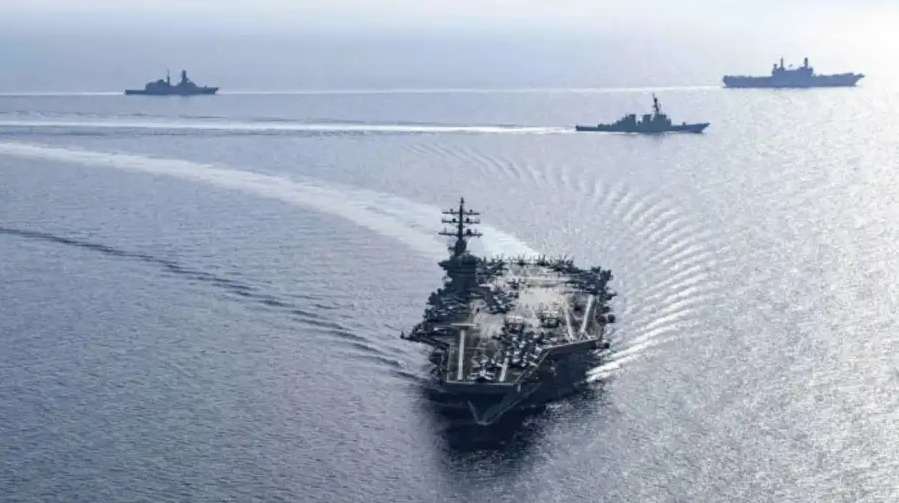Tensions between the United States and Venezuela are nothing new. Since Hugo Chávez came to power in 1999, Caracas began a process of distancing itself from Washington that deepened after the failed 2002 coup d’état. At that time, the Venezuelan government accused the United States of supporting the uprising, and Washington was one of the few countries to briefly recognize businessman Pedro Carmona as head of state.
A constant deterioration of relations
From then on, bilateral relations have steadily deteriorated. Over the past 25 years there have been expulsions of ambassadors, the closure of diplomatic offices, and increasingly hostile rhetoric. This deterioration stems both from the United States’ long interventionist history in Latin America and from the central role that anti-imperialism plays in the identity of the regional left, of which the Chavista movement is a part.

In other words, rejection of Washington is not merely a historical reaction; it also serves as a mobilizing tool for political projects that find it useful to create an external enemy—someone to blame for their problems and around whom to rally their political base.
In this context, over the past two and a half decades, announcements of an imminent U.S. intervention in Venezuela have become routine. As in the fable of “The Boy Who Cried Wolf,” the repetition has bred skepticism among the population: many doubt that the “wolf” will ever come. But this week, a New York Times report about President Donald Trump’s authorization for the CIA to operate inside Venezuelan territory once again set off alarms across the region.
Just a few months ago, some journalists believed that a period of détente was taking shape in bilateral relations—marked by the partial easing of oil sanctions and the repatriation of Venezuelan migrants. But as unpredictable as Trump’s decisions can be, the situation has escalated dangerously. The White House has hardened its discourse, accused Nicolás Maduro’s regime of drug trafficking, and bombed vessels allegedly belonging to Venezuelan traffickers.
Could an actual military intervention occur?
It is unclear. Beyond the rhetoric, it is difficult to identify any political gain for Trump in an operation of this kind: both U.S. public opinion and many of its allies are wary of new wars and foreign spending. In fact, the leak to The New York Times could be a calculated maneuver to increase psychological pressure on Maduro’s coalition—similar to John Bolton’s famous 2019 note “5,000 troops to Colombia” during the previous cycle of tensions.
A U.S. armed action would have deep consequences: it would unleash regional backlash and violate international law. Yet it also raises an uncomfortable question: how can the region condemn foreign intervention while remaining passive in the face of Venezuela’s democratic collapse?
There is overwhelming evidence of the breakdown of Venezuela’s constitutional order. Human rights violations—including disappearances, torture, and sexual violence—have been extensively documented by reputable NGOs and by the United Nations itself. Moreover, Venezuela is the first country in the region under investigation by the International Criminal Court for crimes against humanity.
If the United States were to carry out a unilateral military action, regional representatives would legitimately raise their voices about the pressures such a move could cause along their borders. However, many of these same actors have been far less vigorous in criticizing the predatory economic policies that Maduro has implemented to stay in power—policies that have caused the massive Venezuelan migration that continues to this day.
Many leaders will rightly denounce the violation of national sovereignty. But they have said very little about the sovereignty violations committed by the Venezuelan government itself—such as the assassination of Lieutenant Ojeda in Chile or the kidnapping of opposition figures on Colombian soil. Just a few days ago, two Venezuelan activists exiled in Bogotá were shot. These incidents have received barely any media coverage, and Colombia’s own president has been more discreet about them than about other international issues.
The paradox is clear: Latin America rejects interference, yet rarely acts against the authoritarian regimes that arise within its own borders—even though it has pledged to do so in documents such as the OAS Democratic Charter, which “recognizes that representative democracy is indispensable for the stability, peace, and development of the region.”
The best way to prevent both internal and external violence in the region is to resume a strong and effective agenda in defense of democracy. To paraphrase a famous quote from former Venezuelan president Rafael Caldera: “It is difficult to ask a people to sacrifice themselves for sovereignty when they feel that this sovereignty neither feeds them nor guarantees respect for their lives.”











